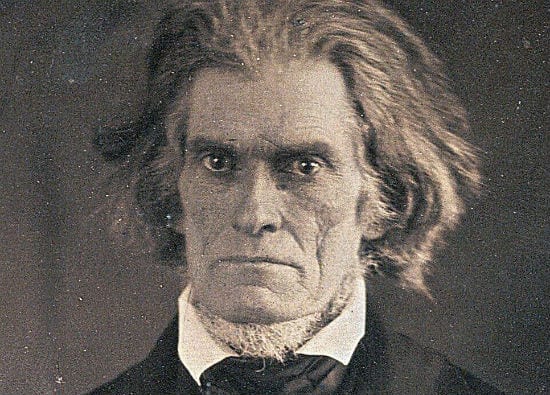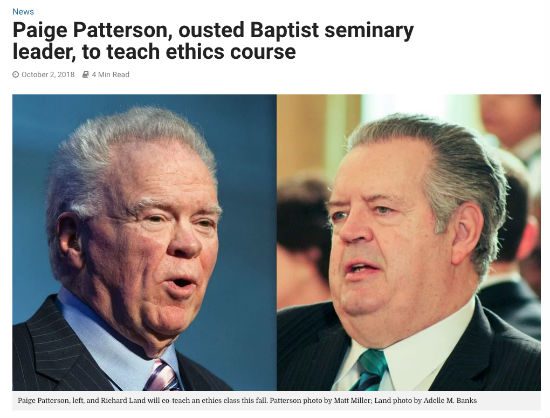Originally posted June 27, 2008.
Read this entire series, for free, via the convenient Left Behind Index. This post is also part of the ebook collection The Anti-Christ Handbook: Volume 1, available on Amazon for just $2.99. Thank you for your support. Volume 2 of The Anti-Christ Handbook, completing all the posts on the first Left Behind book, is also now available.
Left Behind, pp. 452-453
Nicolae Carpathia is working his way around the conference table, inducting his followers one by one into his Team of Evil with his hypnotic incantation and his look-into-my-eyes mind control mojo.
Carpathia went through the ceremony with Steve, who gushed with pride. Nicolae eventually covered everyone in the room except the security guard, Hattie, and Jonathan Stonagal. …
So of the 20 or so people assembled in the room, the authors only bother to show us the induction ceremony for the six characters we already knew by name — Buck, Steve, Hattie, Chaim, Stonagal and Todd-Cothran. This is frustrating. Assembled in this room are the Antichrist’s hand-picked lieutenants, the Grand Council of Evil, the Vice-Regents of Armageddon, the Ten Henchmen of the Apocalypse. Yet we aren’t introduced to a single one of them by name.

This scene wouldn’t fly in the funny pages. Even the worst hacks in the comics biz know how to properly introduce a Rogues’ Gallery. As a sometime comic writer himself — Jerry Jenkins scribed the syndicated newspaper serial Gil Thorp — he should know better. After dropping the ball on this scene, Jenkins’ dreams must’ve been haunted by the angry ghost of Chester Gould.
What sort of people are assembled around this table? That ought to matter. Is this a collection of explicit villains (“Ambassador of the Great States of East Asia Kim Jong Il,” “Ambassador of the Great States of Africa Reanimated Zombie Mobutu,” “Rupert Murdoch, emperor of Australia”)? Or would that be too obvious? Maybe this council of One World Government vice-regents would be composed of others, like Nicolae, who are wolves in sheep’s clothing — Nobel Peace Prize laureates, environmentalists and champions of the poor. Introducing these various ambassadors, even briefly, should have been a prime opportunity to reinforce one of Left Behind’s central themes, Tim LaHaye’s upside-down belief that those who speak of peace, justice and unity are actually the dupes of Satan.
As it is, readers are left with only the vaguest impression of a conference table ringed by interchangeable, faceless white men in expensive suits. That sounds much more like my idea of an evil syndicate than like LaHaye’s.
Carpathia turns to Hattie and gives her the whole “I welcome you to the team … rights and privileges … consistency and wisdom” spiel.
Buck tried to catch Hattie’s eye and shake his head, but she was zeroed in on her new boss. Was this Buck’s fault? He had introduced her to Carpathia in the first place. Was she still reachable? Would he have access? …
“Access“? If that’s not a Freudian slip then I don’t know what else to make of it.
Everyone stared with beatific smiles as Hattie breathed her heartfelt thanks and sat down again.
Here again it’s impossible to tell whether the creepy, unnatural behavior of everyone at the table is meant to be seen that way. The inappropriate and inhuman response of this mostly anonymous group might be intended in this scene to show that they are in the thrall of Carpathia’s mind control. But then it’s not all that different from the inappropriate and inhuman responses that have characterized everyone in the novel, even in scenes that Nicolae has nothing to do with, so who can say?
Carpathia dramatically turned to Jonathan Stonagal. The latter smiled a knowing smile and stood regally. “Where do I begin, Jonathan, my friend?” Carpathia said. Stonagal dropped his head gratefully and others murmured their agreement that this indeed was the man among men in the room. …
We haven’t much time left to consider the sad case of Jonathan Stonagal, so if we’re going to do so before it’s too late we’d best do it now.
Poor Stoney has just never quite fit in Left Behind. Try as he might, Jenkins was never really able to integrate him into the story. Stonagal’s subplots kept turning into tangents wholly unconnected — and unconnectable — to the book’s main plot and setting.
First there was Buck’s Unnecessary Adventure in London — an uncomfortably inserted interlude in which our hero travels to an England from another world, a place where The Event seems never to have occurred. That whole chapter, a pastiche of stock scenes from spy thrillers, fit in so poorly with the rest of the book that even Jenkins seems to have noticed, hastily undoing every consequence of its events as soon as Buck returned to New York. (The conspirators want Buck dead! Oh, nevermind, now they just want him to attend a meeting.)
All we learned of Stonagal from that episode was that he was somehow connected to a plan to consolidate the world’s money into only three currencies. The plan was public knowledge — it’s not like you could change the currencies of more than a hundred nations without their knowledge or consent — yet Stonagal acted as though it were a secretive, surreptitious scheme. The authors didn’t bother to explain, but presumably the international banker (he owned “several” banks, we’re told) was pursuing some kind of insider-trading angle to profit from the currency scheme.
All of that scheming would seem to have been rendered moot days later when Carpathia, newly installed as All Powerful Global Leader of the OWG, declared by fiat that there would be only one global currency.
But of course it’s still true that Nicolae Carpathia would not have become All Powerful Global Leader if not for the assistance and maneuvering of his shadow-government sponsor Jonathan Stonagal. The details of this maneuvering are, again, pretty sketchy, as is the explanation for why Nicolae — already receiving the full assistance of Satan himself — would even need Stonagal’s help.
And that’s Stoney’s real problem. He’s the Satan figure from a different story, a different mythology. Stumbling unwelcome and unneeded into this story — where the Satan figure is actually Satan — he just can’t compete.
Jonathan Stonagal doesn’t belong here. He is, as his name inelegantly suggests, the stand-in for the Rockefellers and Rothschilds of a very different fantasy world — the conspiratorial nightmare realm of LaRouchies and John Birchers. The Rockefellers — or, rather, a nefarious, fun-house mirror version of them — play a central role in the John Birch Society mythos that Tim LaHaye enthusiastically embraced* before he later moved on to become a premillennial dispensationalist “Bible prophecy” guru.
LaHaye’s years spent as a missionary for the goofy beliefs of the John Birchers helped to prepare him for his second career as a promoter of the even goofier beliefs of PMD prophecy mania. Those two worlds share some common traits. Both believe in global conspiracies with evil, if vague, agendas. Both insist that only true believers possess the secret, gnostic keys for decoding the true meaning of history and current events. But these different conspiracies aren’t really compatible — the John Birchers and the PMD heretics decrypt the signs of the times in very different ways.
Yet despite this incompatibility, LaHaye can’t quite seem to let go of many of his younger self’s JBS notions. The continuing influence of those ideas can be seen throughout LB in the authors’ obsession with the United Nations and in their stubbornly perverse misunderstanding of that institution. And this influence can be seen in Jonathan Stonagal, a character who inhabits the faultline or seam between these two systems that LaHaye is still trying, unsuccessfully, to stitch together. Stonagal — the evil Rockefeller** stock character from the John Bircher rogues gallery — seems purposeless and adrift in Left Behind. He stumbles around the edges of this story, unable to find any legitimate reason for his presence. He seems a sad, vestigial relic.
This vague purposelessness of Stonagal’s also underscores one of the defining traits of LB, and of PMD mythology in general, something we might call conspiratorial naivete. LaHaye believes, fervently, that history is shaped by murky, behind-the-scenes forces striving to create a One World Government. Yet he’s complacently incurious about the actual institutions he suspects are part of that conspiracy, and he can’t be bothered to learn anything about how they actually operate or what their motives might be. Stonagal, we assume, is trying to amass money and unchecked power, but how and why he intends to do this doesn’t seem to interest the authors at all. The vague villainy of these conspiracies is proved by a tidy bit of circular reasoning: We know their deeds are evil because they are the deeds of evil men; we know they are evil men because they commit such evil deeds. Beyond that, the authors don’t know, or care to know, any more about such villains.
The portrayal of Jonathan Stonagal in this, his final scene further illustrates L&J’s conspiratorial naivete. For all of their apparent interest in characters like Stoney, they have no idea what might actually make someone like him tick.
Stonagal is meant to be the grand vizier, the power behind the throne — think of Cardinal Richelieu, or James Baker, or Dick Cheney. Such men, as a rule, don’t care about fame, prestige or recognition. They don’t seek titles, since the unrestrained influence they seek to exert always goes beyond the restrictions of any given title. Titles, after all, imply formal offices — with all the checks and balances, responsibilities and restrictions that come with them. That’s not the prize such characters are after.
The powers behind the throne always avoid the spotlight, the headline and the podium, not because they are modest or humble, but because such attention would interfere with their ability to wield power without concern for public opinion or public good. Puppets appear on the stage. Puppet masters do not.
And here we learn that Jonathan Stonagal is too vain, too needy, to succeed as a puppet master. He wants to be thanked, to be praised, to be loved. A real puppet master, a Richelieu or Cheney, would view Stoney’s behavior here with contempt and disdain:
Carpathia took Stonagal’s hand and began formally, “Mr. Stonagal, you have meant more to me than anyone on earth.” Stonagal looked up and smiled, locking eyes with Carpathia.
“I welcome you to the team,” Carpathia said, “and confer upon you all the rights and privileges that go with your new station.”
Stonagal flinched, clearly not interested in being considered a part of the team, to be welcomed by the very man he had maneuvered into the presidency of Romania and now the secretary-generalship of the United Nations. His smile froze, then disappeared as Carpathia continued, “May you display to me and to those in your charge the consistency and wisdom that have brought you to this position.”
Rather than thanking Carpathia, Stonagal wrenched his hand away and glared at the younger man. Carpathia continued to gaze directly at him and spoke in quieter, warmer tones, “Mr. Stonagal, you may be seated.”
“I will not!” Stonagal said.
“Sir, I have been having a bit of sport at your expense because I knew you would understand.”
Stonagal reddened, clearly chagrined that he had overreacted. “I beg your pardon, Nicolae,” Stonagal said, forcing a smile but obviously insulted at having been pushed into this shocking display.
Real puppet masters don’t allow their feelings to be hurt when they don’t receive proper recognition for their accomplishments. They’d prefer their accomplishments to go unnoticed. And they don’t have feelings.
The only thing about this “shocking display” that’s actually surprising is the accidental revelation that Jonathan Stonagal seems to be immune to Nicolae’s mind-control. No amount of warm-toned, hypnotic flattery or eye-gazing seems to work. The Antichrist is unable to bend Stonagal to his will.
That’s interesting. We were told that Buck Williams alone was shielded from Nicolae’s powers due to his “commitment to Christ” and to the protective prayers of his friends in the Tribulation Force. I doubt that we’re meant to assume that Stoney has also become a born-again RTC, or that Bruce and the Steeles are desperately praying for him too. And even with all that divine counter-magic, Buck still wasn’t able to resist as firmly as Stonagal did — wrenching his hand away and saying “I will not!”
So what accounts for this apparent immunity to Nicolae’s preternatural charisma? I have a theory. Like many of my theories that attempt to explain the unexplainable in LB, this one is unsupported, and probably contradicted, by the book itself, but I think it’s interesting.
For about 30 pages in the previous couple of chapters, Jenkins tried to inject a bit of suspense by raising the possibility that Stonagal, rather than Carpathia, was the real Antichrist. What if that were actually true? Or, rather, what if they both were?
What if, years ago, a young Jonathan Stonagal agreed to a deal with the devil. He agreed to dedicate his life to the service of his infernal master, paving the way to One World Government and one counterfeit world religion. In exchange for this faithful service, he would one day rule the world as Satan’s anointed, warring against Heaven itself as the Antichrist.
Here, after decades of careful but ruthless toil, the final pieces of his grand scheme are at last moving into place. The figurehead he personally selected and groomed has been installed as the man through whom he, Jonathan Stonagal, will rule the world. His triumph, finally, is at hand.
And then, just as he is about to receive his reward, Old Scratch points out the fine print in their contract. These things always have fine print, even if all it says, way down at the bottom in microscopic, blood-red ink, is that you’d be a fool to trust the Devil to keep a bargain. Other deals and other promises have been made, Stonagal learns, too late, but only one will be kept. He did all the work, but the figurehead will reap the reward.
That scenario would have made Stonagal a more interesting, more tragic villain. It would also have added an interesting aspect to Nicolae Carpathia’s character — haunting him with the kernel of doubt that belongs to every triumphant adulterous lover.
But as I said, this theoretical scenario isn’t really supported by the book itself. The authors don’t really know or care to know why Stonagal has worked so hard for so many years to set the stage for Nicolae’s global dominion. His elimination in the pages that follow isn’t presented as the inevitable tragic fate of a diabolically ambitious villain. It is, rather, an awkward and belated attempt to correct a wrong turn in the story, to purge an unnecessary character who wandered in, accidentally, from a different conspiratorial fantasy and never really belonged in this story in the first place.
– – – – – – – – – – – –
* For much more on Tim LaHaye’s roots in the John Birch Society, see Michael Standaert’s insightful Skipping Toward Armageddon.
** LaHaye may also be clinging to some 50-year-old worries about the ecumenical movement. The Rockefellers were generous patrons of the once-influential National Council of Churches, helping to fund, among other things, the NCC’s offices at 475 Riverside (a.k.a. the “God Box”). The council was once feared by fundamentalists as a source of corrupting liberal theology. Fundamentalists also criticized its emphasis on interdenominational cooperation as a form of syncretism — a stepping stone to the One World Religion that LaHaye is certain looms in the future of our doomed planet. The Fosdickian bomfoggery (“brotherhood of man under the fatherhood of God”) once enthusiastically promoted by John D. Rockefeller is now as dead as J.D. himself, but LaHaye seems to cling to this bugbear from his youth the way other men his age still cling to the hairstyles and fashions of the postwar years.
 William Katt, who played the title roles in Pippin and The Greatest American Hero, turns 69. Years ago, I wrote about my frustration with the shallowness of Pippin, which I described as “a period piece, locked in the ’70s at that moment in time when the ’60s were beginning to morph into the ’80s.” It sets out as the story of a young man’s search for meaning, then winds up being about his decision not to do that. Think of it as “OK, Boomer,” the musical.
William Katt, who played the title roles in Pippin and The Greatest American Hero, turns 69. Years ago, I wrote about my frustration with the shallowness of Pippin, which I described as “a period piece, locked in the ’70s at that moment in time when the ’60s were beginning to morph into the ’80s.” It sets out as the story of a young man’s search for meaning, then winds up being about his decision not to do that. Think of it as “OK, Boomer,” the musical.













